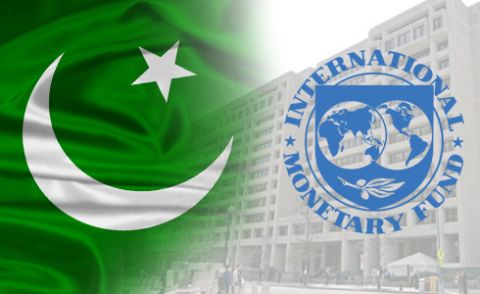—Interim or next government may be left with no option but to approach IMF for meeting monetary needs: experts
ISLAMABAD: As the government seems reluctant in approaching IMF again for another loan, as it could be political suicide for it in the next elections, the ruling party will try to handle the financial issues in next five months while leaving the interim or next government with no option but to go to IMF for meeting the monetary needs.
According to experts, the government will get more commercial loans from banks, issue more sukuk/bonds and take other short-term measures to lower pressure on reserves. “Besides, the ruling party may also seek assistance from Saudi Arabia, Turkey or China in case of emergency. The frequent visits of the prime minister and ministers of these countries indicate that the ruling party is seriously looking for alternatives to avoid IMF, devaluation of rupee and others measures which may severely damage the image of the already crisis-hit party ahead of next election,” they opined.
Meanwhile, the government may obtain short-term debts through selling local PIBs. State Bank of Pakistan has already completed a draft for launching Pakistan Development Fund for the Pakistani Diaspora in order to channelise their remittances more effectively, the experts claimed.
“In case of urgency during its last one or two months, the government may publish extra currency notes, as did by the previous government of Pakistan Peoples Party (PPP), which will ultimately push inflation up as already indicated by SBP in its recent reports,” they said.
Talking to Pakistan Today, Sustainable Development Policy Institute Deputy Executive Director Dr Viqar Ahmed said, “Apart from other indications, the SBP report now shows the government’s desperation as most of the domestic debt now being procured is short-term in nature, using instruments such as T-bills.”
The existing and projected size of the current deficit in 2017-18 is a major challenge for the incumbent government. The deficit has already doubled in the first two months of this financial year. Asian Development Bank (ADB) has recently projected that the deficit will rise to more than $ 14 billion, representing a growth of 17 per cent over last year’s level. The way things are going, experts believe, the current account deficit could approach $ 16 billion in 2017-18.
According to available data, the combined borrowing from external sources by the government, public sector enterprises, banks and the private sector reached the historic level of almost $ 16 billion in one year, 2016-17. Not so long ago, this used be the cumulative borrowing over a two to three year period. The total outstanding external debt now stands at above $ 83 billion.
A report shows that in the financial year 2016-17, traditional multilateral agencies like the IBRD, IDA and ADB provided, more or less, concessional long-term financing of almost $ 3 billion. Besides, bilateral, especially member countries of the Paris Club, gave assistance of close to $ 5 billion. China also emerged as a major financier with project assistance of $ 1.6 billion and most of the financing by its commercial banks. The overall commercial borrowing by the Government was almost $ 5 billion in 2016-17. Also, $ 1 billion was obtained by flotation of a Sukuk bond.
Along with the skyrocketing deficits, the reserves, which started declining in 2016-17, stood at $ 14 billion by the end of September 2017, which is barely enough to cover three months imports.
























